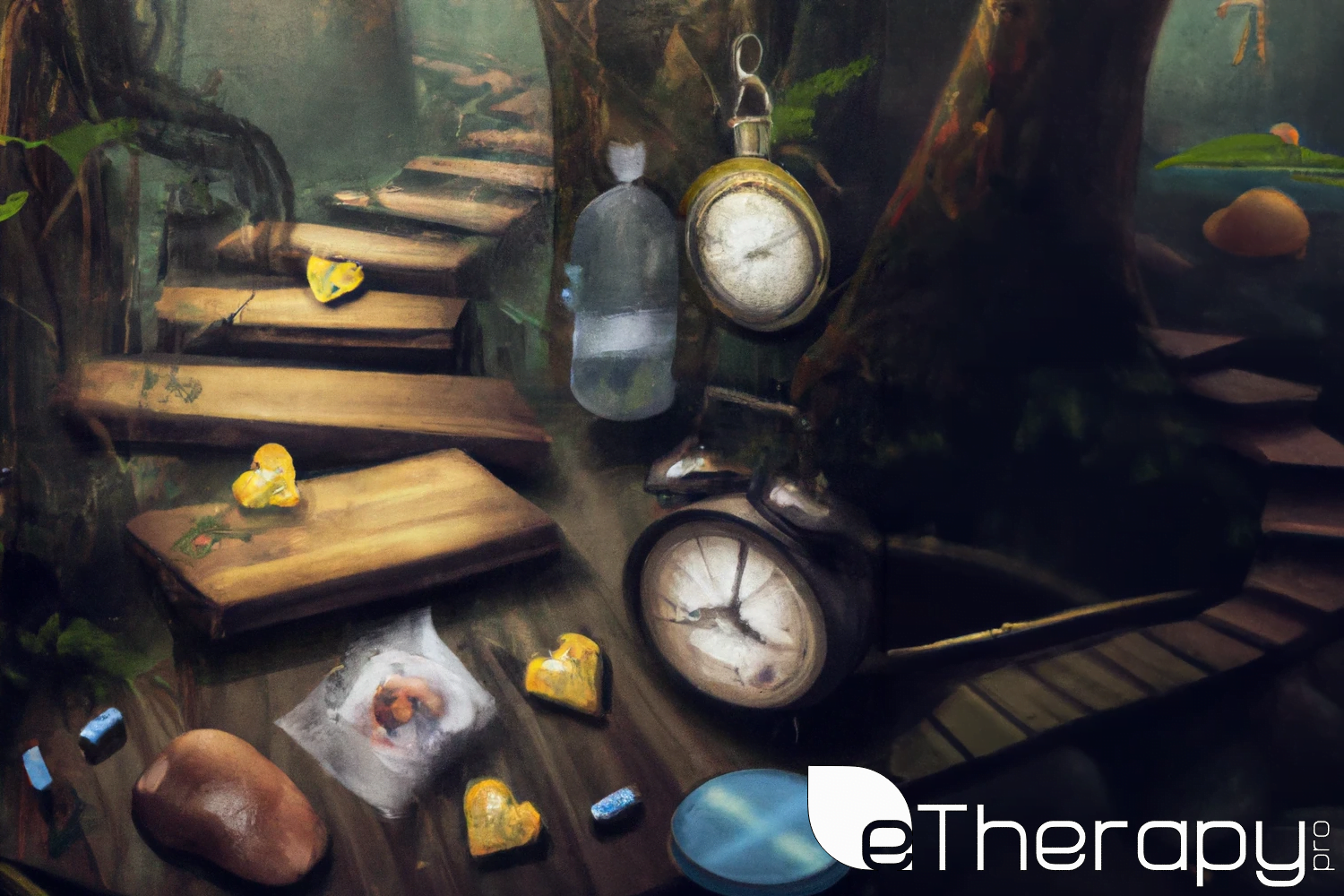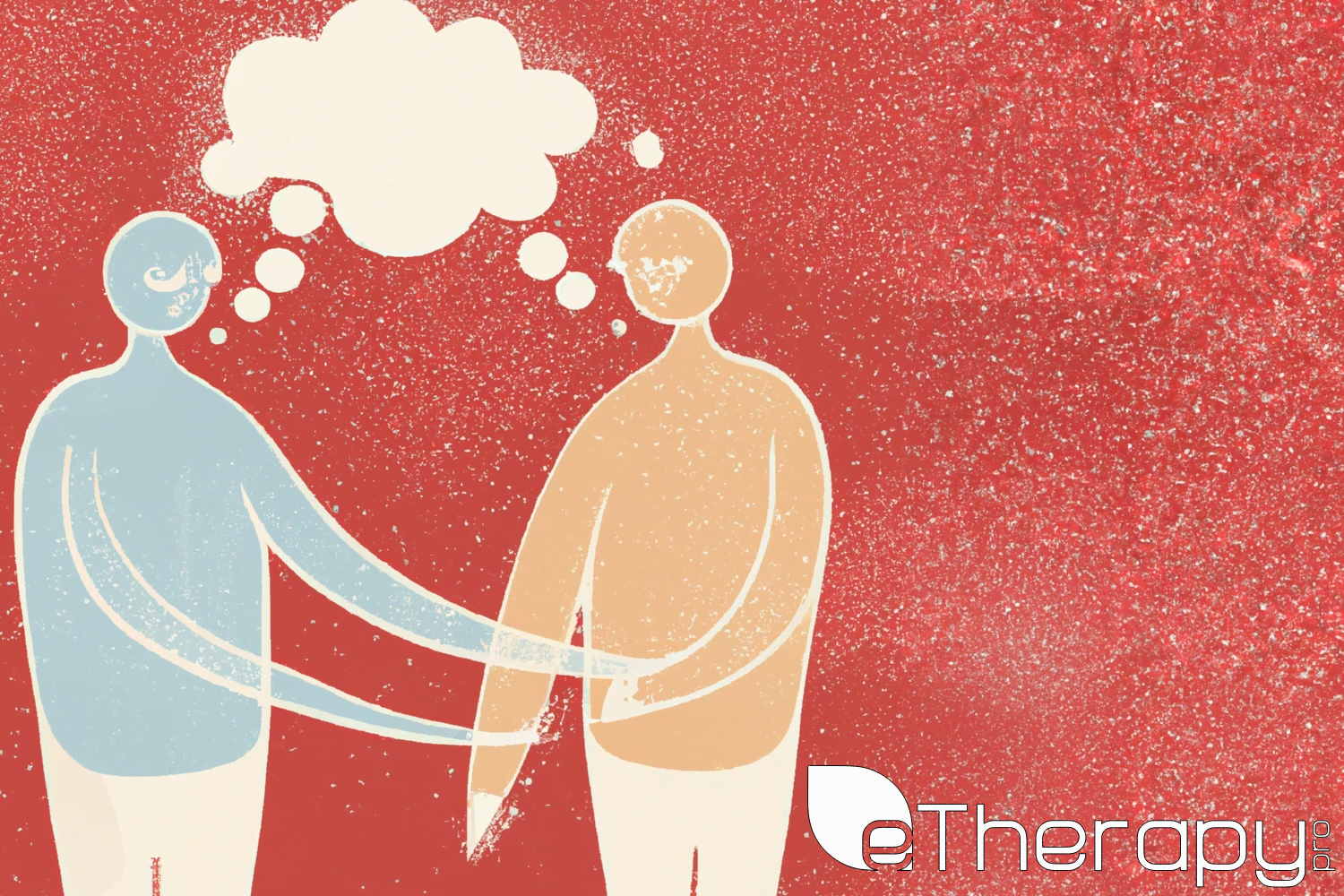
Depression and anxiety can be like uninvited guests, showing up at our doorstep without notice. One moment, you might be going about your daily routine, and the next, you’re caught in a whirlwind of unsettling emotions. What can you do when you’re suddenly faced with these feelings? Is there a way to cope? This article is aimed to guide you through these exact questions. We’ll explore the sudden onset of depression and anxiety, how to recognize them, and importantly, arm you with practical and effective coping strategies. Additionally, we’ll discuss the crucial link between physical and mental health, pitfalls to avoid, and when it might be time to seek professional help. Here’s to understanding and navigating these tough moments, and ultimately, empowering yourself on your journey to mental well-being.
Mental health…is not a destination, but a process. It’s about how you drive, not where you’re going. – Noam Shpancer
Understanding Sudden Depression and Anxiety
Sudden depression and anxiety can feel like a storm appearing out of nowhere, turning your world upside down. Understanding these mental health conditions, their signs, and impacts is the first step towards regaining control.
Recognizing the Symptoms of Depression
Depression often brings along a deep sense of sadness, as if you’re stuck in a bottomless pit with no escape. This isn’t just a bad day or a momentary dip in mood – it’s a constant feeling of despair that doesn’t seem to lift.
Feeling Down or Sad
This is perhaps the most known symptom of depression. You might feel an overwhelming sense of hopelessness, like a gray cloud that refuses to clear. Even when good things happen, it can feel like you’re viewing the world through a dark filter that dims any positive light.
Loss of Interest
Depression can also rob you of your passions and interests. Activities, hobbies, or social events that once brought you joy might now seem tedious or meaningless. The world can feel colorless, and it can be hard to muster the energy to engage in anything at all.
Changes in Sleep and Appetite
Changes in sleep patterns and appetite are other significant signs of depression. You might find yourself sleeping far too much or struggling with insomnia. In terms of eating habits, you might lose your appetite entirely, or you could find yourself eating much more than usual.
Recognizing the Symptoms of Anxiety
Anxiety, on the other hand, often feels like an ongoing internal storm. Your mind may be filled with racing thoughts and constant worries that are difficult to silence.
What lies behind us and what lies before us are tiny matters compared to what lies within us. – Ralph Waldo Emerson
Constant Worry
With anxiety, worries seem to multiply and spin out of control. These are not just everyday concerns – they’re persistent and can be about anything, from health and finances to social situations and daily tasks. They often seem impossible to shake, even when you know they’re out of proportion.
Feeling Restless or On-Edge
Restlessness or feeling on edge is another common symptom of anxiety. It’s as though you’re constantly ready to run from a danger that isn’t there. This can lead to difficulties in relaxing, focusing, or even sleeping.
Rapid Heartbeat
Anxiety doesn’t just impact the mind; it affects the body too. It’s common to experience a rapid or pounding heartbeat, especially during anxiety attacks. It’s your body’s natural response to perceived danger – the fight-or-flight response – even if there’s no real threat present.
The Impact of Sudden Mental Health Changes
The sudden onset of depression and anxiety can have a profound impact on your daily life. You might feel overwhelmed, confused, and helpless, but it’s important to remember that these feelings are not permanent and can be managed. In the following sections, we’ll explore empowering strategies to cope with these challenges and when to seek professional help.
Empowering Coping Strategies for Sudden Depression and Anxiety
When grappling with sudden depression and anxiety, the road to recovery may seem steep. However, equipped with the right coping strategies, you can navigate this journey one step at a time.

Embracing Mindfulness
Mindfulness is like having a pause button for your brain. It’s about staying present and focused on the here and now rather than getting lost in past regrets or future worries.
Practice Daily Meditation
A simple way to start embracing mindfulness is through daily meditation. It doesn’t have to be for long, even a few minutes each day can help. Meditation can calm your racing mind and help you gain a better perspective on your thoughts and feelings. You can use a guided meditation app or simply sit quietly, focusing on your breath.
Mindful Activities
You can also bring mindfulness into your everyday activities. Try to fully focus on whatever you are doing at the moment. It could be washing dishes, taking a walk, or eating a meal. Pay attention to all the senses involved in the activity. This can be a powerful way to anchor yourself in the present.
The Role of Physical Activity in Mental Health
Physical activity and mental health go hand in hand. When you move your body, you give your mind a break too.
Regular Exercise
Aim for at least 30 minutes of exercise each day. It could be a brisk walk, a bike ride, a dance class, or even just running around with your pet. Exercise releases endorphins, the feel-good chemicals, which can boost your mood and act as natural stress busters.
Gentle Movements
If intense exercise is not for you, gentle movements like yoga or stretching can also help. These activities not only work your body but also require focus and deep breathing which can calm your mind.
Harnessing the Power of Social Connections
Feeling connected with others can be a strong antidote to depression and anxiety. Sharing your thoughts and feelings with someone you trust can be a great relief.
Reach Out to Friends or Family
If you’re feeling down or anxious, reach out to a friend or family member. You don’t have to go through this alone. Having a heartfelt chat with someone who cares about you can often lighten the load.
Join a Support Group
If talking to friends or family is not an option, consider joining a support group. Sharing your experiences with people who are going through the same thing can make you feel understood and less alone.
Tackling Negative Thought Patterns
Depression and anxiety often involve getting stuck in negative thought patterns. Learning to recognize and challenge these thoughts can be a powerful tool in your mental health toolkit.
Keep a Thought Diary
Try keeping a thought diary. Whenever you notice a negative thought, write it down. Then write a positive or balanced counter-thought next to it. This practice can help you notice your negative thought patterns and work on changing them.
Practice Positive Affirmations
Positive affirmations can also help combat negative thinking. These are positive statements that you repeat to yourself, like “I am capable,” or “I can handle this.” They can help reinforce a positive self-image and boost your confidence.
Self-care is not a waste of time; self-care makes your use of time more sustainable. – Jackie Viramontez
The Art of Self-Compassion
Last but not least, be kind to yourself. Often, we are our own harshest critics. Learning to treat yourself with the same kindness and understanding you’d give a friend can make a big difference in how you cope with depression and anxiety.
Practice Self-Care
Self-care means taking care of your physical, emotional, and mental health. It can be as simple as taking a relaxing bath, eating a healthy meal, or taking time to do something you enjoy. Remember, it’s okay to put your needs first sometimes.
Forgive Yourself
Forgive yourself for not being perfect. Everyone has tough days or makes mistakes. Instead of beating yourself up, try to see these as opportunities for learning and growth.
Remember, the journey to overcoming sudden depression and anxiety isn’t always straightforward. It’s okay to take one step at a time and celebrate your progress along the way. In the next section, we’ll discuss some traps to avoid on your journey.
Traps to Avoid: Unhealthy Coping Mechanisms
In your journey to overcome sudden depression and anxiety, there will be times when you might be tempted to resort to certain actions that might seem helpful in the short term but can be harmful in the long run. These are often referred to as unhealthy coping mechanisms, and recognizing them is a crucial step towards better mental health.

Avoiding Feelings
Burying or ignoring your feelings might seem like the easiest way to cope, but it’s a trap. Acknowledging and understanding your feelings is an important part of healing. Try to express what you’re feeling, either by talking to someone you trust or writing in a journal.
Substance Abuse
Some people turn to alcohol, drugs, or excessive caffeine to escape their feelings. While these may provide temporary relief, they can lead to more problems down the line, such as addiction or health issues. Remember, it’s okay to ask for help if you’re struggling with substance use.
Overworking
Overworking is another common trap. Throwing yourself into work can be a way to avoid dealing with feelings or stress. But in the long run, this can lead to burnout and increased anxiety.
Unhealthy Eating Habits
Depression and anxiety can also impact your eating habits. This could involve overeating, not eating enough, or eating unhealthy foods. It’s important to nourish your body with a balanced diet to support your mental health.
Key Traps to Recognize and Avoid
To make it easier, here’s a list of common unhealthy coping mechanisms to watch out for:
- Ignoring or avoiding your feelings
- Turning to substances like alcohol or drugs
- Diving into work to avoid dealing with stress
- Adopting unhealthy eating habits
Everyone slips up sometimes, and it’s okay. If you notice yourself falling into these traps, don’t beat yourself up. Instead, remind yourself of the healthier coping strategies we discussed in the previous section. In the next section, we will explore the link between physical and mental health and how they influence each other.
The Link Between Physical and Mental Health
Many of us know that keeping our bodies healthy is important, but did you know that our physical health can also affect our mental health? Understanding this connection can be a game-changer when dealing with sudden depression and anxiety.
Body and Mind: Two Sides of the Same Coin
Think of your body and mind as close friends. They constantly influence each other. If one is going through a rough time, the other is likely to feel it too. For instance, if you’re physically ill, you might feel down or anxious. Similarly, feeling depressed or anxious can lead to physical issues like headaches, stomach problems, or fatigue.
Diet: Fuel for Your Mind and Body
What you eat also matters. Your brain needs the right fuel to function properly. A balanced diet, full of fruits, vegetables, lean proteins, and whole grains, can help you feel better both physically and mentally.
Sleep: A Cornerstone of Health
Don’t underestimate the power of a good night’s sleep! Sleep plays a critical role in both physical and mental health. Lack of sleep can increase feelings of depression and anxiety. So, try to make sure you’re getting enough rest.
Maintaining a Healthy Lifestyle for Mental Health: Key Takeaways
To sum it all up, here are the key points to remember:
- Your physical health and mental health are interconnected.
- Regular physical activity can help reduce feelings of anxiety and depression.
- Eating a balanced diet provides the nutrients your brain needs to function properly.
- Enough sleep is crucial for your overall well-being.
In the next section, we’ll discuss when it might be time to seek professional help and how to go about it. Remember, it’s okay to ask for help. Everyone needs support sometimes, and there are professionals out there who are ready and willing to provide it.
Seeking Professional Help: When and Why
Even though self-care strategies are a crucial part of dealing with sudden depression and anxiety, there are times when professional help becomes necessary. Understanding when to seek help and what types of help are available can significantly impact your journey to better mental health.
When is it time to Seek Help?
The first step to getting help is recognizing when you need it. If you observe the following signs, it may be time to reach out:
- Your feelings of depression or anxiety are intensifying, or they’re not improving despite your efforts with self-care techniques.
- These feelings are interfering with your daily activities and responsibilities.
- You’ve started having thoughts of harming yourself or others.
The Benefits of Psychotherapy
Psychotherapy, also known as ‘talk therapy’, is a method where you engage with a trained mental health professional. These professionals help you understand your feelings, guide you to modify harmful thought patterns, and equip you with coping strategies. Research has consistently shown that psychotherapy can effectively manage and alleviate symptoms of depression and anxiety.
Types of Psychotherapy
Several types of psychotherapy are beneficial:
- Cognitive-behavioral therapy (CBT): This method aids in identifying and altering thought patterns that result in harmful feelings or behaviors.
- Interpersonal therapy (IPT): IPT focuses on enhancing your relationships with others, which can mitigate feelings of depression and anxiety.
- Psychodynamic therapy: This approach assists you in understanding how your past influences your current feelings and behaviors.
The Convenience and Comfort of Online Therapy with eTherapyPro
With advancements in technology, therapy has adapted and moved online. Online platforms like eTherapyPro offer convenient access to professional therapists through text messages, phone calls, or video calls. It’s a great solution if leaving home is challenging for you or if local therapists aren’t readily available.
Deciding to Seek Professional Help
It’s perfectly okay to ask for help. If you’re feeling trapped, or if your feelings are deteriorating, reach out to a mental health professional. You don’t have to face this alone. Assistance is available, and you deserve to feel better.
Conclusion: Embracing Your Journey to Mental Well-being
In this journey through understanding sudden depression and anxiety, we have equipped ourselves with essential tools. Recognizing the symptoms, employing healthy coping mechanisms, comprehending the crucial link between physical and mental health, and embracing professional help through platforms like eTherapyPro, all contribute to a proactive approach towards mental wellness.
Navigating through the waters of mental health may feel overwhelming, but remember, you are not alone in this journey. You are more than capable of surmounting these challenges, and with each step you take, you’re getting closer to a healthier and happier you. Embrace this journey towards mental well-being, knowing that you are worthy of healing and happiness.
